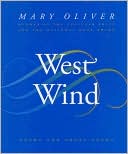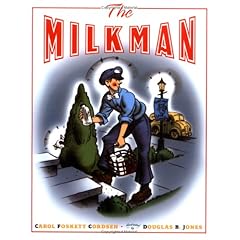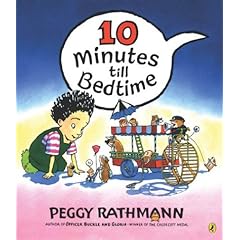A sinus infection and a bad internet connection have interrupted my blogging plans, so I have a bit of catching up to do...

You are young. So you know everything. You leap
into the boat and begin rowing. But, listen to me.
Without fanfare, without embarrassment, without
any doubt, I talk directly to your soul. Listen to me.
~ Mary Oliver, "West Wind #2"
When I was taking Contemporary Lit. in college, I went to a
Mary Oliver reading on the professor's recommendation. Afterwards, the professor asked me what I thought. I had connected to the few Mary Oliver poems we read in class, yet... "Well, I enjoyed it. But... um--for a contemporary poet she, well, seemed kind of 'old school' to me."
I couldn't explain I meant by 'old school' at the time, but now I realize that there were two elements in Oliver's work that stumped me.
First, after being told over and over that most of my poems would be better off with the last two lines chopped off, Oliver's conclusions sometimes seemed amateurishly overstated. She was blatant in ways I never could have gotten away with in a college workshop.
Second, Oliver's poems lacked the edginess that I had come to assume was a necessary part of contemporary poetry.
I felt embarrassed by my lack of appreciation for the Pulitzer-winning poet, so it was with joy and relief that I recently ambled through
West Wind: Poems and Prose Poems. The author is so delighted with the transient beauty of the world, so full of awe and expectation, that it's no surprise that she seemed a little naive to me. There is no
slyness in her work. Reading
West Wind is like taking a walk with Oliver in her own backyard. She gives you the weight of her meaning with the same simplicity with which she might hand you an interesting stone. I still sometimes feel the sacrilegious need to lop of a last word or line from some of Oliver's poems (
"Pilot Snake," for instance), but I wonder sometimes if this isn't because I've been trained to be less generous in my writing.
I'm a pretty selfish poetry reader too. What I look for most in poet is that "yes" moment. The moment in which I say, "Yes, that's exactly how that is, but I never could have said it that way" or, even better, "How does she know? How does she know it feels just that way, but only to me?" It doesn't matter how beautiful the language or refined the style is, if I don't have that "yes" moment, I leave a poetry collection disappointed. I was not often disappointed with
West Wind. I've read the poem
"Black Oaks" about six times now. The whole poem is like a "yes" moment, but the lines that clinched it for me were
"Listen, says ambition, nervously shifting her weight from /one boot to another--why don't you get going?" It is hard for me to pull a single line out of any one of the poems in
West Wind because the lines were made for the poem and not the other way around (which tends to be my temptation when I write), and I don't know when to stop quoting.
There is not a large variation in tone, theme, or subject in
West Wind, and this may keep Oliver out of my very favorite poets list, but
West Wind is arranged so that the poems build gently on the same ideas. Not many collections feel as perfectly ordered as this one. If she reminds me of a child at the beginning, by
"Have You Ever Tried to Enter the Long Black Branches," the last poem in the book, she seems ancient enough to ask,
"Do you think this world is only an entertainment for you?" and then explain what the world really is. I find that I accept her credibility as a guide without knowing at what point I gave in.


















